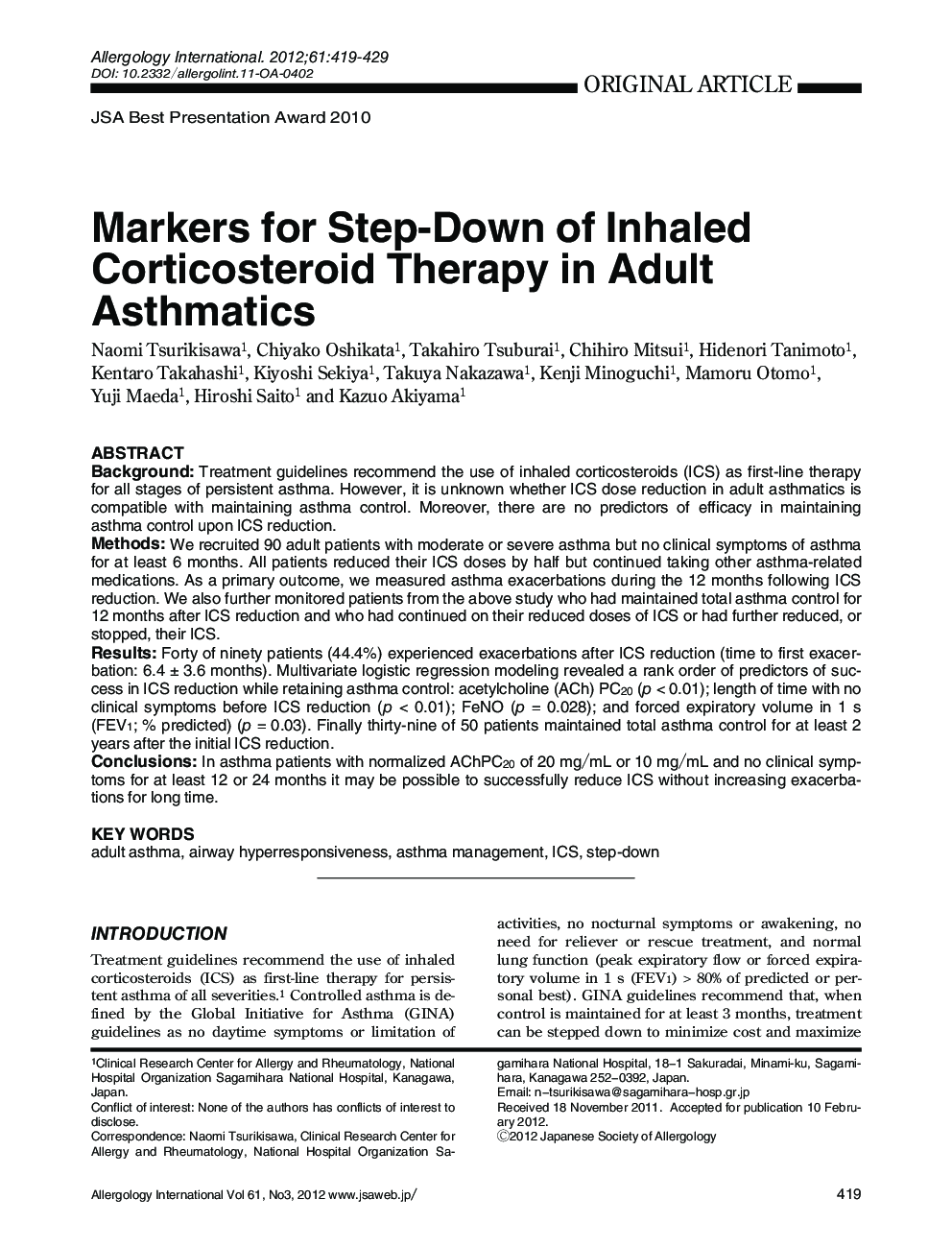| Article ID | Journal | Published Year | Pages | File Type |
|---|---|---|---|---|
| 3340762 | Allergology International | 2012 | 11 Pages |
ABSTRACTBackgroundTreatment guidelines recommend the use of inhaled corticosteroids (ICS) as first-line therapy for all stages of persistent asthma. However, it is unknown whether ICS dose reduction in adult asthmatics is compatible with maintaining asthma control. Moreover, there are no predictors of efficacy in maintaining asthma control upon ICS reduction.MethodsWe recruited 90 adult patients with moderate or severe asthma but no clinical symptoms of asthma for at least 6 months. All patients reduced their ICS doses by half but continued taking other asthma-related medications. As a primary outcome, we measured asthma exacerbations during the 12 months following ICS reduction. We also further monitored patients from the above study who had maintained total asthma control for 12 months after ICS reduction and who had continued on their reduced doses of ICS or had further reduced, or stopped, their ICS.ResultsForty of ninety patients (44.4%) experienced exacerbations after ICS reduction (time to first exacerbation: 6.4 ± 3.6 months). Multivariate logistic regression modeling revealed a rank order of predictors of success in ICS reduction while retaining asthma control: acetylcholine (ACh) PC20 (p < 0.01); length of time with no clinical symptoms before ICS reduction (p < 0.01); FeNO (p = 0.028); and forced expiratory volume in 1 s (FEV1; % predicted) (p = 0.03). Finally thirty-nine of 50 patients maintained total asthma control for at least 2 years after the initial ICS reduction.ConclusionsIn asthma patients with normalized AChPC20 of 20 mg/mL or 10 mg/mL and no clinical symptoms for at least 12 or 24 months it may be possible to successfully reduce ICS without increasing exacerbations for long time.
